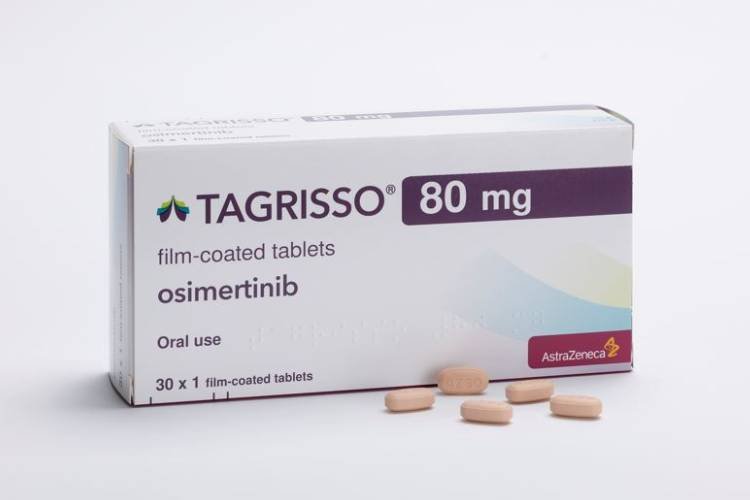The lung cancer drug market has been notably dominated by antibodies and immunotherapies, but a recent report from GlobalData suggests that older, small molecule drugs can still secure a significant foothold, with AstraZeneca’s Tagrisso poised to take the lead in this segment.
GlobalData’s analysts anticipate Tagrisso, a small molecule kinase inhibitor, to generate over $7 billion in sales by 2029. Originally approved in 2015 for specific non-small cell lung cancer (NSCLC) patients with EGFR mutations, it received first-line approval in 2018 and an adjuvant approval in 2020.
Tagrisso stands as AstraZeneca’s top-selling drug, achieving $5.44 billion in sales in 2022, marking a 15% increase from the previous year. This figure is more than double the combined sales of AstraZeneca’s newer oncology drugs, Imfinzi (an immunotherapy) and Lynparza (a PARP inhibitor).
Also Read: Tagrisso-Chemo Combo Delays EGFR NSCLC Progression By 9 Months In First-Line (IASLC WCLC 2023 Conference)
“In the ever-evolving landscape of oncology, small-molecule drugs are carving a significant niche in lung cancer treatment,” stated GlobalData analysts. “Tagrisso is projected to be a pivotal contributor to AstraZeneca’s portfolio, with anticipated sales surpassing $7 billion and a 48% market share of small molecules in lung cancer treatment by 2029.”
GlobalData’s projections suggest a robust demand for small molecules in the treatment of non-small cell lung cancer within the eight major countries (U.S., France, Germany, Italy, Spain, U.K., Japan, and China), with the market expected to exceed $15 billion by 2029.
Also Read: J&J’s Rybrevant Combination Therapy Beats AZ’s Tagrisso In Lung Cancer Trial
Roche is expected to secure the second position with projected sales exceeding $2.5 billion and a market share of 17%.
Nonetheless, the lung cancer market at large is primarily dominated by Merck’s Keytruda, a PD-1 immunotherapy, which amassed nearly $21 billion in sales last year. Keytruda holds numerous FDA approvals and is considered a leader in lung cancer treatment, with labels for combination therapies as well as first- and second-line treatments. In comparison, Bristol Myers Squibb’s Opdivo, another immunotherapy with multiple cancer indications and NSCLC approvals, earned $8.2 billion in sales in the same period, positioning it as BMS’s second best-selling drug after Eliquis, a heart medication that surpassed $11 billion in sales.





























